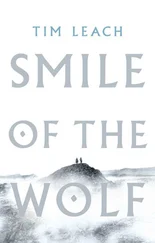No words for a time. Perhaps he was meant to speak first – had he forgotten some simple piece of etiquette? But just as he thought he could bear the silence no longer, he heard the words of the Emperor. A soft voice, speaking with care.
‘It is always good to see a son of Rome come home.’
‘My life is yours, Caesar.’
‘You are like me – a dead man returned to life once more. Let us hope you bring good fortune back across the water with you.’
‘Yes, Caesar.’
A shifting rustle of cloth. ‘The barbarians, they shall not give us much trouble?’
‘They are worthy warriors, Caesar.’ A little intake of breath somewhere close, for it seemed he had spoken something forbidden. ‘But none may stand before Rome,’ Lucius added quickly. ‘It will be a great victory, Caesar.’
‘I am sure it will. And an honour, of sorts, for them. We only destroy our truly great enemies. Perhaps such a monument will not displease them.’
‘It will not, Caesar.’
Again, he knew it to be the wrong answer. The creak of leather as someone close by shifted from foot to foot. Caius perhaps – Lucius knew that he must be there.
The Emperor sounded amused. ‘Strange as it sounds, I almost envy you your time amongst them. In a different time, they would be worth a treatise. But what use is it to study a dying people? They should be forgotten, don’t you think?’
The questions hung in the air, living and deadly, too dangerous to touch. And so Lucius gave no answer.
‘Ovid wrote of them,’ the Emperor said, after a moment’s silence. ‘Briefly, but that shall be enough. No more words of Rome for them.’
‘Yes, Caesar.’
‘As for you, there is little to offer you. There can be no Crown of Valour given for a captured man. But we are grateful to see you return.’ A pause. ‘It is always good to see a son of Rome come home,’ the Emperor said again, seeming unaware of the repetition.
Now, Lucius knew, was the time to stay silent. Soon the Sarmatians would pass into nothingness like a dream. In a year he would bear only scars and memories, and they would fade too, in time.
‘We shall arrange some appropriate reward, I am sure,’ said the Emperor. Again the rustle of purple cloth – some gesture of dismissal, it seemed. For once more he could hear the executioner’s tread of the Praetorians coming forward, coming to take him away.
Always, Lucius had thought himself a brave man. He knew well the steady calm upon the battlefield that washed away all fear, where all that existed was the next action that must be taken – the turning of a sword, the bracing of a shield, half a step taken forward, one word spoken in command. Yet now he knew what a simple thing it was to be a coward, when it was necessary merely to say nothing.
‘If my only request were to speak a little more,’ Lucius said, ‘would you grant it, Caesar?’
The air seemed to grow sharp about him, unseen needles prickling at his skin. And he heard Caius speaking, the Legate’s voice cracking with a tremor of rage. ‘The centurion is tired, Caesar, and has misspoken. Forgive him. He will go now.’
A dry chuckle. ‘Oh, we must always mind the treasury, or so I am told. Words cost less than gold, most of the time, and this may be an uncostly reward. Speak then, centurion. There is little that surprises me now.’ A little hardening of the tone then, as the Emperor said: ‘But I am very curious as to what you will say next.’
Lucius did not answer for a long time. Kneeling before the Emperor, how easy it was to believe in Rome. For a god was power, nothing more, for all that the Christian cultists might whisper otherwise. Here, before him, was power. Nothing mattered other than that.
‘I have been amongst the Sarmatians,’ he said at last. ‘Seen more of them than any other Roman, perhaps. And I think it would be a great pity to destroy them, when we might put them to better use.’
Silence, then. What was there to say? For it was a centurion’s place to beat his men into order, to lead them from the front, to die as an example to others. It was not his place to think and speak, any more than a hunting hound would be asked for counsel.
The Emperor spoke again: ‘What use is that?’
‘They are the finest heavy horse in the world. The only cavalry who can break a Legion. They can make Rome more powerful than ever before.’
‘And yet they have chosen to fight us, not surrender. I have offered them peace once already.’
‘They wish for a war, Caesar. Grant them one against your enemies, and they shall fight for you.’
‘You say so? You think so. Look at me, centurion.’
The old stories of myth, of looking upon the forbidden, of men turned to stone, dragged to the Underworld, immolated by a jealous god for looking at what they should not. But death to disobey the command of the Emperor, and so Lucius lifted his head and looked once more upon a god.
‘You admire them, don’t you?’ the Emperor said flatly.
‘Caesar, I—’
‘There is no need to lie.’ And the Emperor looked about himself irritably, at all the courtiers he was surrounded by. Something fell away from him then – the weary tyrant and conqueror was gone for a moment, and Lucius caught a glimpse of who he might have been had he not been chosen for the purple. Some bright-eyed scholar collecting stories of distant lands, noting ritual and practice, devising philosophies and writing epigrams.
‘Do you admire them?’ the Emperor said.
‘I do, Caesar.’
‘A failing in you, centurion. A corruption of the Roman spirit.’ A pause. ‘But tell me why, nonetheless.’
‘Bravery, Caesar. They would rather die than be defeated.’
‘Rabid dogs are brave, too. I would not spare them. And I hope that you do not doubt the courage of the Legion.’
‘It is something different with the Sarmatians,’ Lucius said. ‘A kind of thinking bravery… forgive me, Caesar, I do not have the words.’
‘A thinking bravery, is it? You believe it easier to be brave and not to think?’
‘I do, Caesar.’
‘So do I.’
Quiet, then. A Tribune gave a hesitant laugh, quickly stifled behind his hand when no others joined him. For most of the others seemed frightened, watching the Emperor. Only Caius kept his eyes on Lucius, his face blotched purple with rage.
‘I will not spare them for being brave,’ the Emperor said. ‘That might earn them a place in my writings. But it is not a reason to keep them alive.’ And there was a relief amongst those gathered as he spoke, for it seemed they would have their war. There could be comfort in butchery, if it were familiar enough.
‘Yes, Caesar,’ Lucius said.
A smile upon the Emperor’s face. ‘But perhaps they may be of use, as you say. And perhaps you may be of use, as well. For word came this morning, from Egypt.’ A sound, then – the rapping of fingers upon a wax tablet. And once more, the stillness in the air. ‘Gaius Avidius has rebelled in Egypt, and proclaimed himself Emperor.’
The air ringing with sound – men crying out their loyalty, calling for vengeance, sounding curses to the gods. The Emperor raised his hand, and just as swiftly there was silence once more.
‘Yes,’ he said, ‘it is true. A single false report of my death goes to the west, and already the jackals think to pick at my corpse. If we had barbarians alone to fight against, that would be enough. So you will make one more offer to them, centurion. To bend the knee and enter my service at once. To fight against the enemies of Rome. Or we shall destroy them utterly.’
‘Yes, Caesar. I will not fail you.’
‘Perhaps you will.’
A heavy sigh, and Lucius saw that he was there once more – the tyrant, conqueror, killer. Rome’s butcher. That was what a life spent wearing the purple had done to him, a life spent on the border, fighting a war without end.
Читать дальше
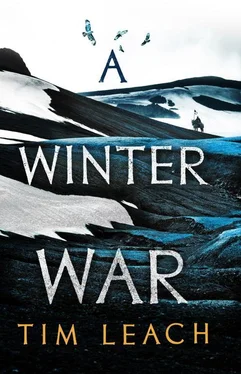
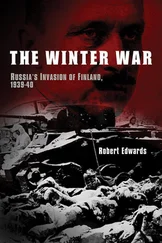

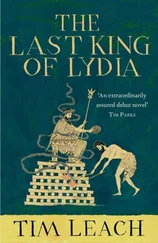

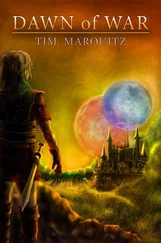

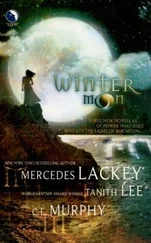
![Стюарт Слейд - Воины зимы [Winter Warriors ru]](/books/401383/styuart-slejd-voiny-zimy-winter-warriors-ru-thumb.webp)
